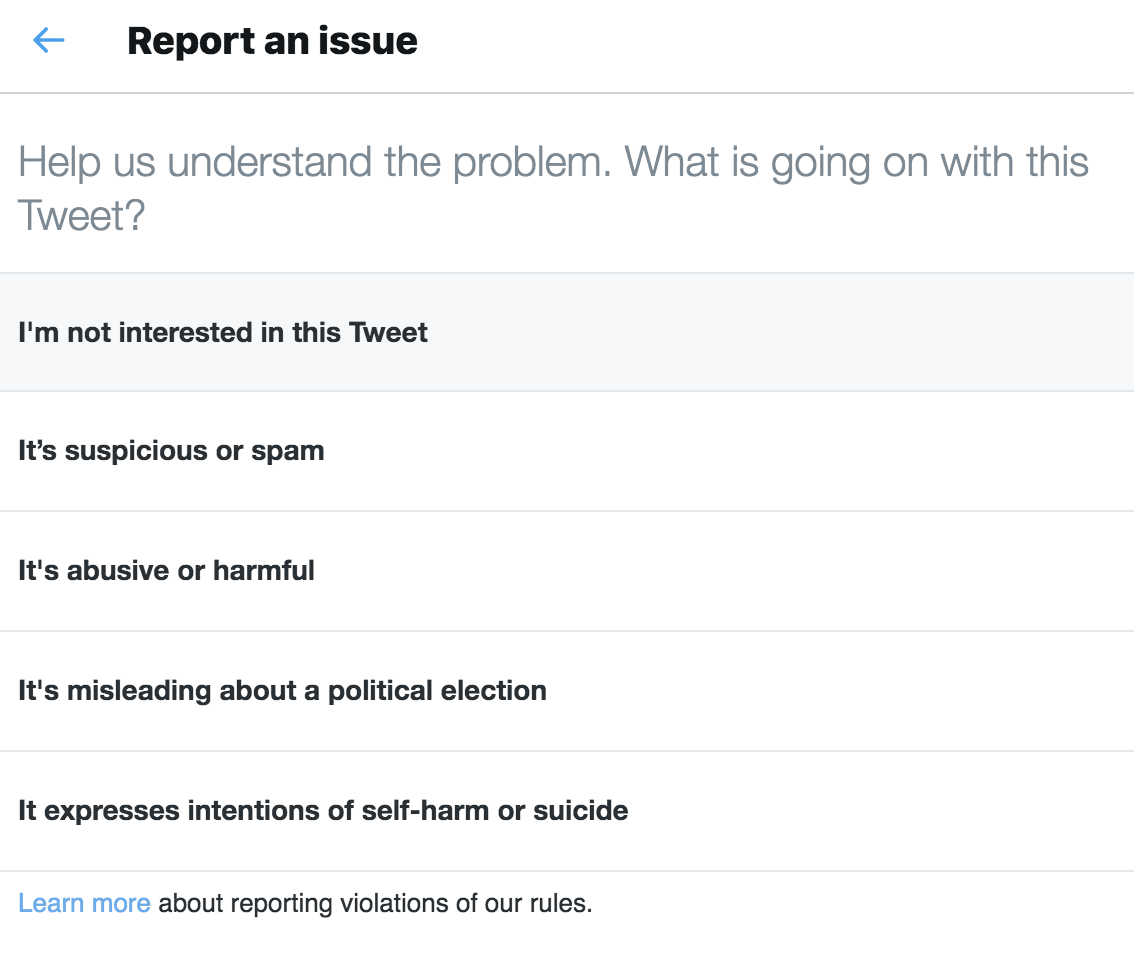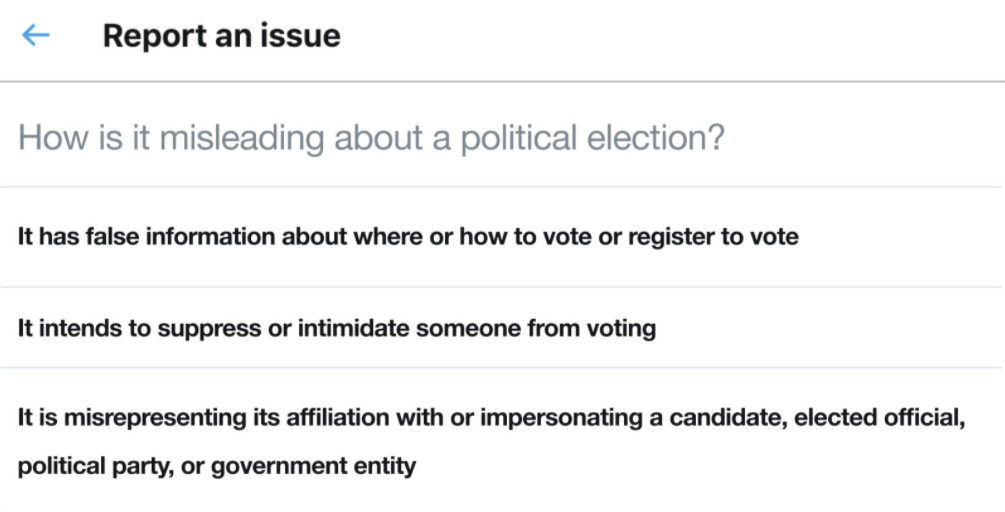There’s misinformation that can impact elections indirectly by changing political opinions: “Hillary kills FBI agents,” “Pope Francis endorsed Trump,” “Macron is funded by the Saudis,” “Bolsonaro’s opponent wants to ban churches and turn your kids gay,” that sort of thing.
Then there’s misinformation that can impact elections directly by lying about the electoral process itself: flyers that say “Don’t forget to vote Wednesday!” when the election’s on Tuesday, text messages that intentionally direct people to the wrong polling place, or Facebook posts that spread bogus absentee ballot deadlines.
That second kind has gotten more attention this week, including Twitter’s announcement that U.S. users will now be able to report tweets with misleading information about voting.
We’re turning on a tool for key moments of the 2020 US election that enables people to report misleading information about how to participate in an election or other civic event. pic.twitter.com/BxHAiLSWjG
— Twitter Safety (@TwitterSafety) January 30, 2020
Tweets that seek to suppress turnout or mislead voters violate Twitter’s rules and, for the first time, users can flag tweets using the same drop-down menu previously available for reporting abusive material or spam.
While it’s the first time the tool is being offered in the U.S., users in India were given a similar option last April as the country’s national elections — the largest in the world — approached. Twitter also rolled out a version for the European Union election that took place that same month.

The announcement from Twitter came shortly after Democratic presidential candidate Elizabeth Warren shared a plan to impose civil and criminal penalties on those who intentionally share election-related misinformation for the purpose of voter suppression.
(Ironically enough, Warren’s proposal was subject to its own quasi-misinformation yesterday when CNBC published a story that implied she was trying to criminalize all misinformation — which was then shared across Twitter in shocked tones. CNBC eventually updated the headline.)
Elizabeth Warren proposes criminal penalties for spreading disinformation online https://t.co/7tUD3dvDxq
— CNBC (@CNBC) January 29, 2020
So I opened the Warren page again. I wasn't wrong. There was nothing saying "criminal penalties for spreading disinformation online" GENERALLY.
It was civil/criminal penalties for disinformation relating to "when and how to vote."
That's pretty different.
3/
— Kate Klonick (@Klonick) January 29, 2020
The reporting tool may be a step in the right direction for Twitter as it seeks to address concerns from policy makers and the public about whether they’ve done enough to counter campaigns that seek to influence elections by spreading false information on their platform. According to a new study by the Pew Research Center, nearly half of Americans say they don’t trust Twitter as a source for political news. (Only Facebook was distrusted by a higher proportion — 59 percent — among the major social media sites.)
Leave a comment